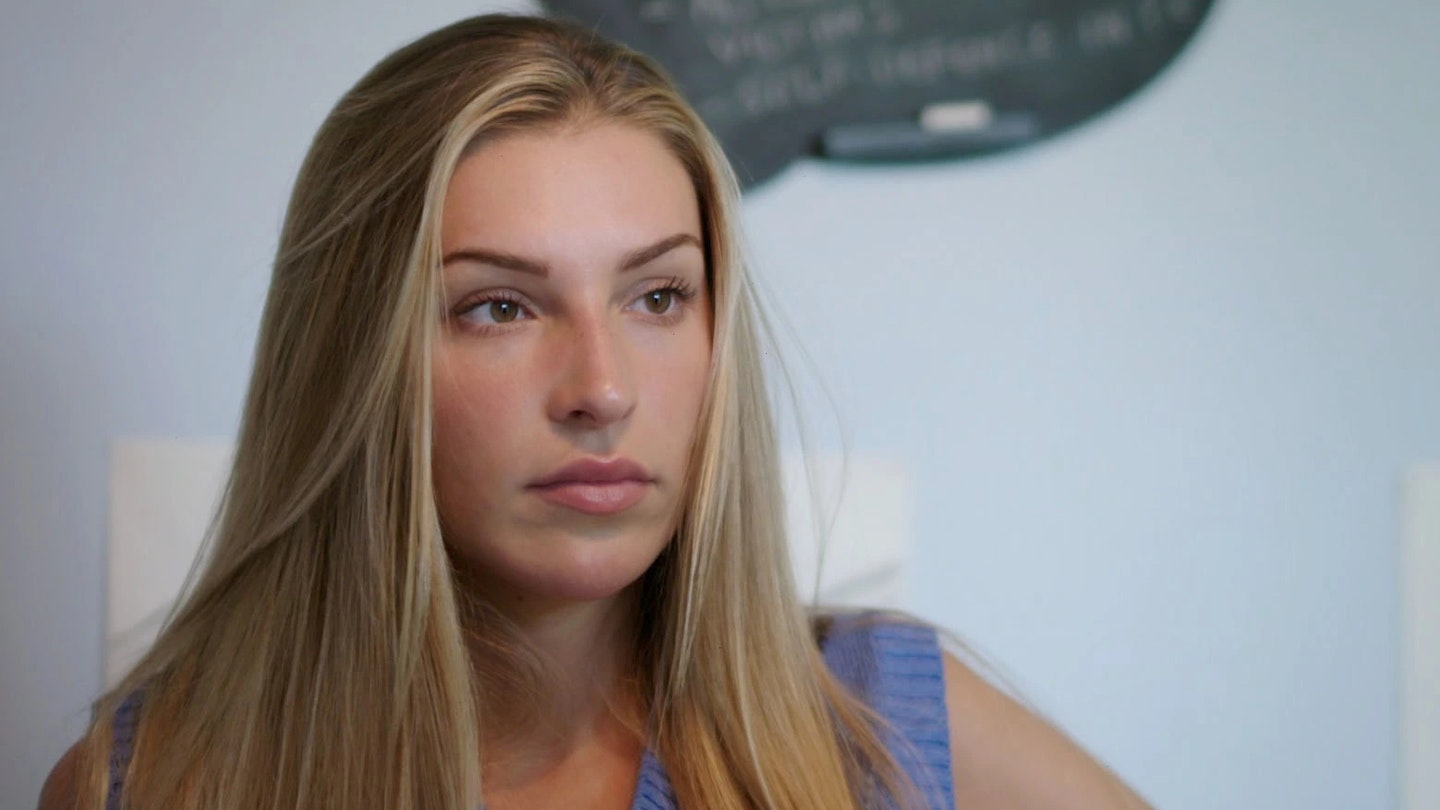We were first introduced to former government policy advisor Zara McDermott in 2018 when she burst onto our screens as a Love Island bombshell. Fast forward four years and Zara’s career is still thriving on the small screen but in a wholly different realm to reality TV, as she is cementing herself as an authentic documentary presenter by covering ground that is often deemed taboo.
In February last year, Zara’s debut documentary, Revenge Porn, saw her reflect on the traumatic ordeal of having nude photos of her leaked as a teenager. A follow-up film came nine months later, Uncovering Rape Culture, which explored Zara’s own sexual assault and featured interviews with young women and girls about their experience of rape culture.
And in her latest project, the 25 year old is on a mission to educate herself about disordered eating, speaking to people who suffer with eating disorders and learning in the process how her social media posts could be having a negative impact on her wealth of followers (1.7 million).
At a screening of Zara McDermott: Disordered Eating in London, the TV star said, ‘I really wanted to make this film because it's something that I'm seeing every single day. It just felt so timely and so right to make it. There's light, there's shade. There's everything that I wanted.’
Before finding fame on Love Island, Zara says she was content in her body and had never counted a calorie in her life. This quickly changed once she left the villa as she fell victim to horrific trolling after sharing holiday snaps, which saw her branded a ‘fat whale’ and a ‘unit’.
'I was told so many times I was fat and there’s a finite amount of times you can hear that before you actually start to believe it,' Zara shares in her documentary.
Then in November 2020, Zara took to social media to document her 3-stone weight loss, with a ‘before’ photo from June 2019 and more up-to-date snaps. She stressed in the documentary how shedding the pounds was obtained by healthy means (i.e. using a personal trainer) but she was aware how losing weight could spiral into an obsession.
‘Can't believe how far I've come!’ she wrote alongside her transformation photos almost two years ago. ‘The first pic of me was a girl who never exercised and ate whatever she wanted. She wasn't unhappy or insecure about weight...but she knew that she needed to start exercising, eating more fruits and veggies and making wiser choices in order to be healthier.’
I used to think posting pictures of my body was the coolest thing in the world.
Her lifestyle overhaul is emphasised on a second Instagram account called ‘A Day With Zara’, where the influencer shares her meals and workout regimes. But now, after discovering how ‘triggering’ weight loss posts can be for those suffering from eating disorders, Zara has taken it upon herself to devise a social media checklist.
‘I look back at my social media, especially “On A Day With Zara” a few years ago, and I'm like, “Oh my god, I was posting constant body checks!”' Zara says. 'I was younger and thought it was the coolest thing in the world. I think it comes from age, but it also comes from experience, because you start to learn what's actually meaningful and valuable to other people.
‘One thing I've learned is thinking about when you're posting, who you're posting for and what you're posting. You go through that little mental checklist in your head, and you think, “Right, am I posting this for myself because I want validation? If I'm doing that, is that really the right thing to post?” And that's kind of the mental checklist I go through every day now.’
Disordered Eating sees a range of people open up to Zara about their experience with food, many of whom go on to receive specialist help to overcome their eating disorders. ‘I genuinely, hand on my heart, take every single contributor story with me - and it just changes me a little bit for the better,’ Zara said.
‘My brain is going to be full by the time my career ends, but these people don't understand what an impact they have on me and the viewer,' she continued. 'Those sequences take a long time to film sometimes. You’ve got to really get in the flow and make them feel really comfortable to open up. That is a bit of a process. I'm so sure to reassure them that they are making a difference by sharing their story, and I let them know what a positive impact they are having.’
While Zara – who is heading up and down the country this week to show her important film in schools - recognises that ‘influencers like me’ have a responsibility to think twice about the content they are posting, she hopes her documentary is a message to everyone.
‘We all have a responsibility to post the most responsible content we possibly can,' she urged. 'And I hope that this film gives people a checklist, a bit of a tick box to say, “Okay, does my content meet this?” Making a documentary on an issue that is not the easiest to have those conversations with people around you is something that I want to continue to do, because we start to break those stigmas and break down those walls. I really hope that it's a conversation starter for parents and their kids, teachers and their students. The first step to kind of healing, especially in our society, is talking.’
For support with eating disorders, visit: beateatingdisorders.org.uk
